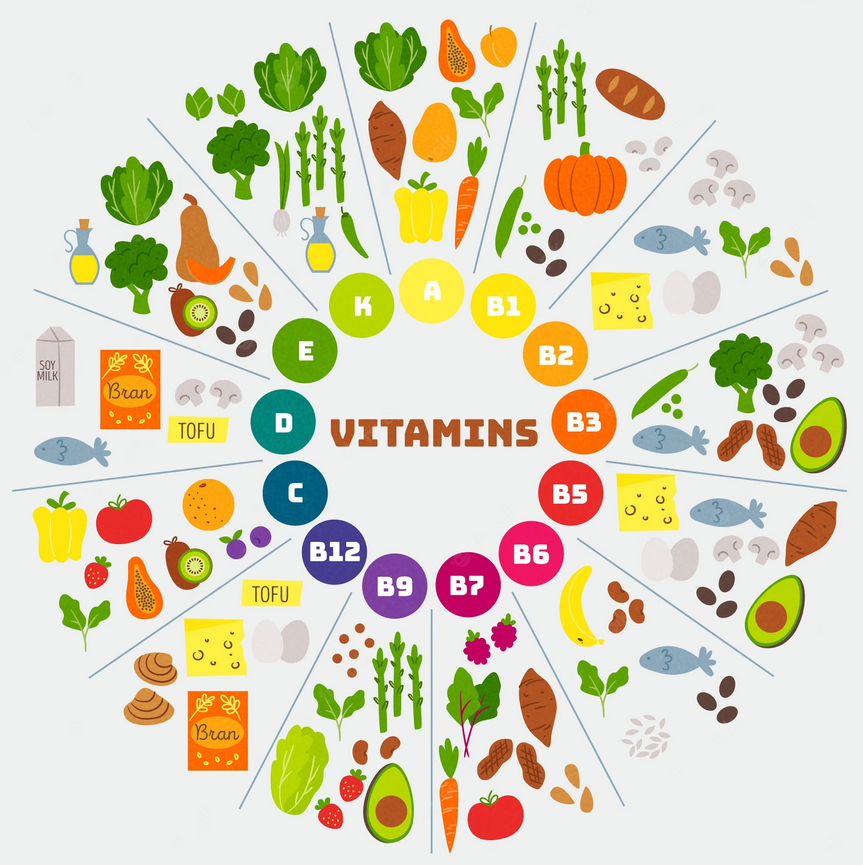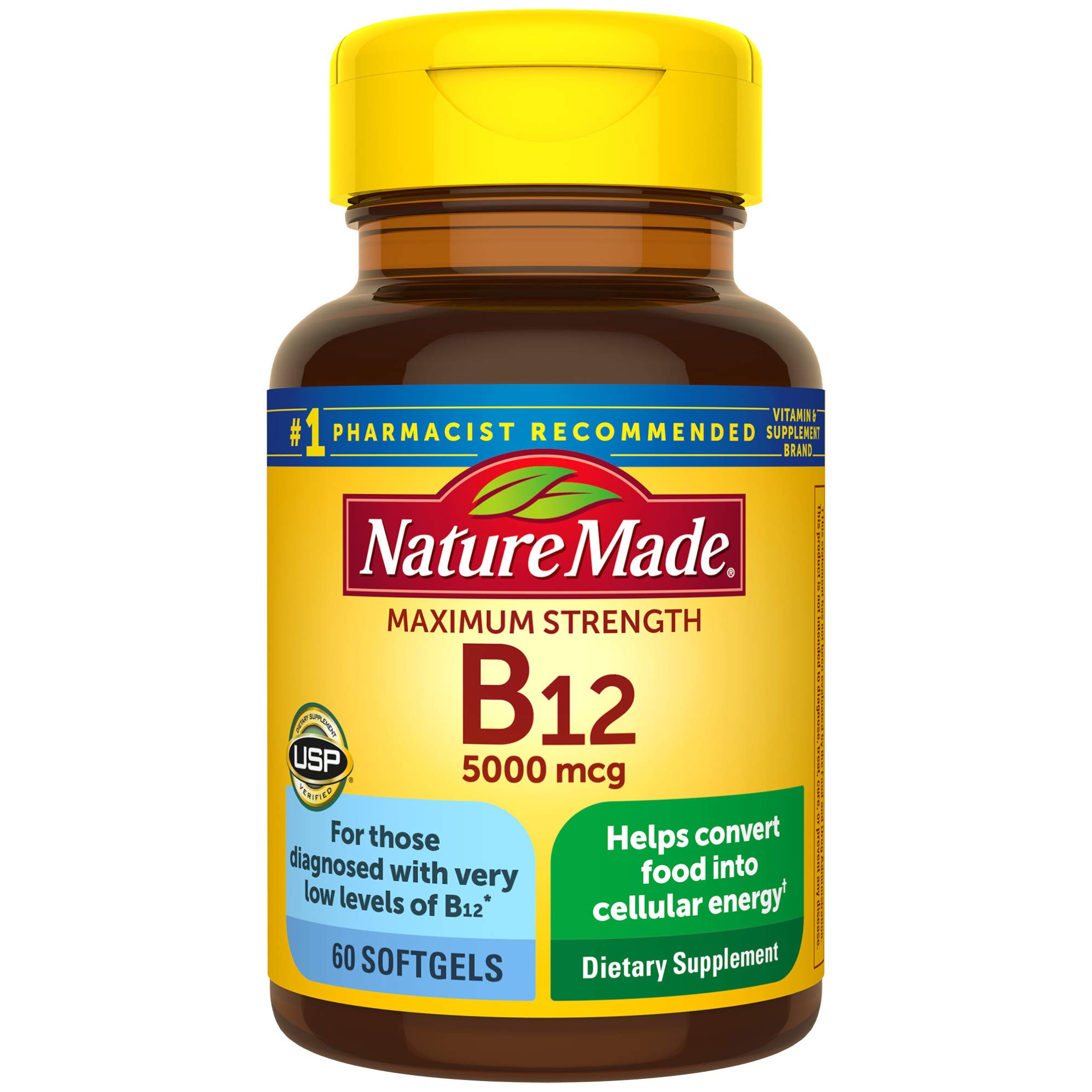Vitamin B12, or cobalamin, is an essential nutrient the human body requires for various physiological functions. For example, it plays a vital role in forming red blood cells, DNA synthesis, nerve function, and maintaining a healthy brain. However, despite being needed in relatively small amounts, the precise measurement of vitamin B12 can sometimes be confusing. This article explores and clarifies the significance of 2.4 micrograms of vitamin B12, providing a comprehensive understanding of its impact on health.

Before diving into the details, it’s crucial to understand what micrograms are and how they relate to the measurement of nutrients. A microgram (µg) is a unit of mass equal to one-millionth of a gram. Due to their small recommended daily intakes, micrograms are commonly used to measure the number of substances, primarily vitamins and minerals.
Vitamin B12 is an essential nutrient needed for the proper functioning of the human body. It is crucial in the formation of red blood cells, the maintenance of a healthy nervous system, and the production of DNA. However, despite its importance, many people do not consume enough vitamin B12, leading to deficiencies and health problems.
Recommended Daily Intake of Vitamin B12
The recommended daily intake (RDI) of vitamin B12 varies depending on several factors, such as age, sex, and life stages. In the United States, the National Institutes of Health (NIH) provides the following guidelines:
- Infants (0-6 months): 0.4 micrograms (mcg)
- Infants (7-12 months): 0.5 mcg
- Children (1-3 years): 0.9 mcg
- Children (4-8 years): 1.2 mcg
- Children (9-13 years): 1.8 mcg
- Adolescents (14-18 years): 2.4 mcg
- Adults (19 years and older): 2.4 mcg
- Pregnant women: 2.6 mcg
- Breastfeeding women: 2.8 mcg
How Much is 2.4 Micrograms of Vitamin B12?
2.4 micrograms of vitamin B12 is equivalent to 0.0000024 grams, and it is usually available in 1000mcg tablets, which usually cost 10 cents. The recommended daily intake (RDI) of vitamin B12 for adults and adolescents is typically set at 2.4 micrograms (µg). However, the body’s actual amount absorbed and utilized may be lower than the total intake due to absorption efficiency and individual variation.

Vitamin B12 is recycled in the body through a process known as enterohepatic circulation. For example, bile secreted by the liver carries vitamin B12 into the intestines, where it can be reabsorbed. This recycling process helps optimize the utilization of vitamin B12, but it also means that the body’s daily requirement for new vitamin B12 intake is relatively small.
However, individual requirements may differ based on certain conditions. For example, individuals with malabsorption issues or specific medical conditions that affect vitamin B12 absorption may require higher amounts to compensate for reduced absorption.
It’s also worth mentioning that the body stores vitamin B12 in the liver, providing a reserve to draw from in times of decreased intake. These stores can last several years, but inadequate intake can deplete the body’s resources, leading to deficiency.
While the recommended daily amount of vitamin B12 varies depending on age, gender, and other factors, most adults need around 2.4 micrograms daily. This may not seem like a large amount, but it is essential to understand that the human body has a limited capacity to absorb vitamin B12.
Only about ten mcg of vitamin B12 can be absorbed at one time. This means that even if you consume 1000 mcg of vitamin B12, only around ten mcg of it will be absorbed by your body, and the remaining 990 mcg will pass through your system.
The B12 molecule is too large to cross the gut wall alone. Instead, it requires the assistance of a particular protein called Intrinsic Factor to be carried across the gut wall and into the bloodstream. However, the amount of Intrinsic Factors in the digestive system is limited, which means that only a tiny amount of vitamin B12 can be absorbed at once.
So, what does this mean for someone who consumes 2.4 mcg of vitamin B12 daily? It means that their body is getting the recommended amount of vitamin B12, but they need to be diligent about consuming it regularly. If they devoured a large amount of vitamin B12 in one sitting, most of it would pass through their system and not be absorbed.
It is also important to note that a vitamin B12 deficiency can lead to a variety of health problems, including anemia, nerve damage, and cognitive decline. This is why it is essential to consume enough vitamin B12 regularly through a balanced diet that includes sources such as meat, fish, and dairy products or supplements.
Inadequate intake or absorption of vitamin B12 can lead to a deficiency, which can have profound health implications. Deficiency symptoms may include fatigue, weakness, pale skin, shortness of breath, neurological problems, and cognitive difficulties. If left untreated, severe lack can cause pernicious anemia, nerve damage, and long-term neurological impairments.
Sources of Vitamin B12
Vitamin B12 is primarily found in animal-based foods, making it a challenge for individuals following strict vegan or vegetarian diets to obtain adequate amounts solely from food sources. Animal-derived products rich in vitamin B12 include meat (especially organ meats like liver), poultry, fish, shellfish, eggs, and dairy products. In addition, fortified plant-based foods like breakfast cereals, plant-based milk, and nutritional yeast are also sources for individuals following plant-based diets.
Supplements can be a viable option for individuals who struggle to meet their vitamin B12 needs through diet alone. Vitamin B12 supplements are available in various forms, such as tablets, capsules, liquids, and injections. It’s crucial to consult with a healthcare professional or registered dietitian before starting any supplementation to determine the appropriate dosage and form.
Conclusion
Vitamin B12 is an essential nutrient required for numerous bodily functions. Therefore, understanding the significance of 2.4 micrograms of vitamin B12 helps emphasize the importance of meeting the recommended daily intake.
While 2.4 mcg of vitamin B12 may not seem significant, it is crucial to consume this amount regularly to maintain optimal health. It is also essential to understand that the human body has a limited capacity to absorb vitamin B12, so consuming large amounts of vitamin B12 in one sitting will not lead to greater uptake by the body. Being mindful of the amount of vitamin B12 you have and finishing it regularly helps to ensure that your body gets the nutrients it needs to function correctly.
- How Many Tablespoons is One Clove of Garlic? - June 26, 2024
- How to Measure 3/4 Cup When You Don’t Have the Right Measuring Cup? - June 6, 2024
- How Much Does Cooked Pasta Weight Compare To Dry? - April 30, 2024
